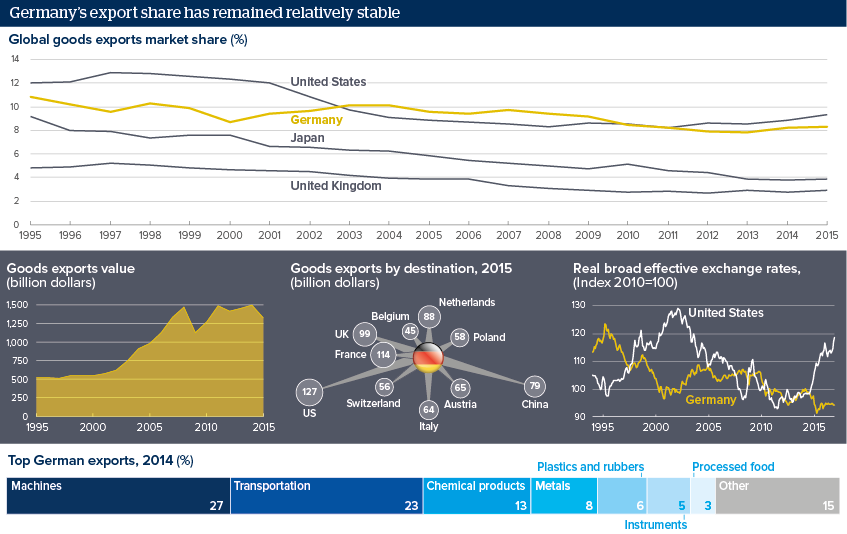German exports may remain strong despite Brexit, Trump
Germany competes primarily on quality, but the weak euro has also improved its price competitiveness
Source: Federal Reserve Bank of St. Louis, Observatory of Economic Complexity, UNCOMTRADE
Outlook
Exports accounted for more than one-third of Germany’s GDP in 2015, but the uncertainty around the impact of Brexit and US President Donald Trump’s trade policies has raised concerns about the future of the German model of export-driven growth.
Germany competes on quality rather than price, but the depreciation of the real effective exchange rate has improved its competitiveness. The technical complexity and high degree of specialisation of its exports means that demand for German products is price inelastic and likely to withstand potential barriers to trade relatively well.
Impacts
- German exporters will benefit from the euro-area’s modest recovery.
- The ECB’s expansionary policy -- which keeps the euro weak -- hurts German bank depositors who face negative real interest rates.
- Medium-sized companies -- the ‘Mittelstand’ -- could suffer disproportionally from non-tariff barriers to trade.
- Domestic demand may become increasingly important as a driver of growth.
See also
- Merkel will seek pragmatic relationship with Trump - Mar 17, 2017
- Germany’s economic recovery may remain anaemic - Jan 13, 2017
- More graphic analysis
